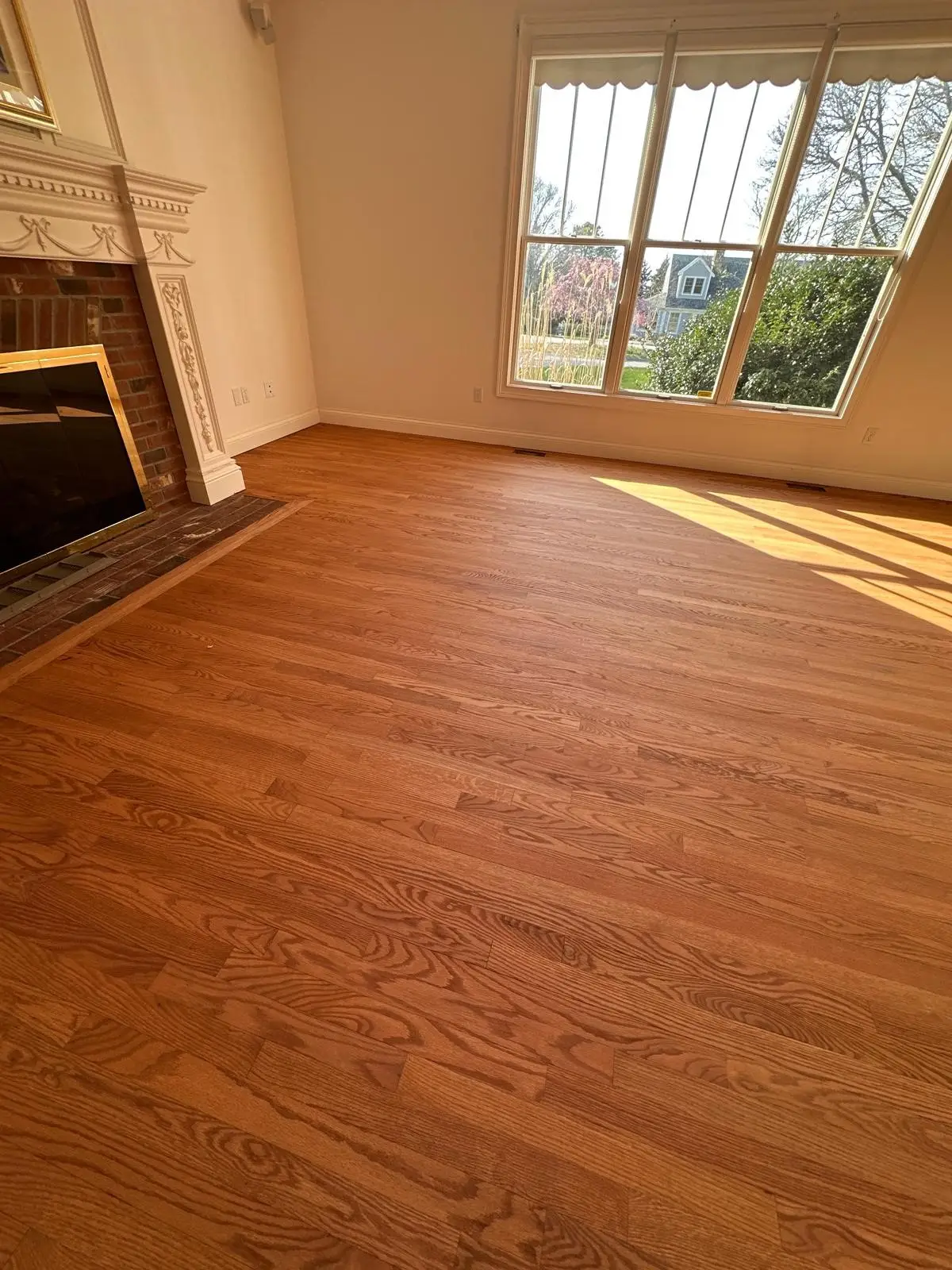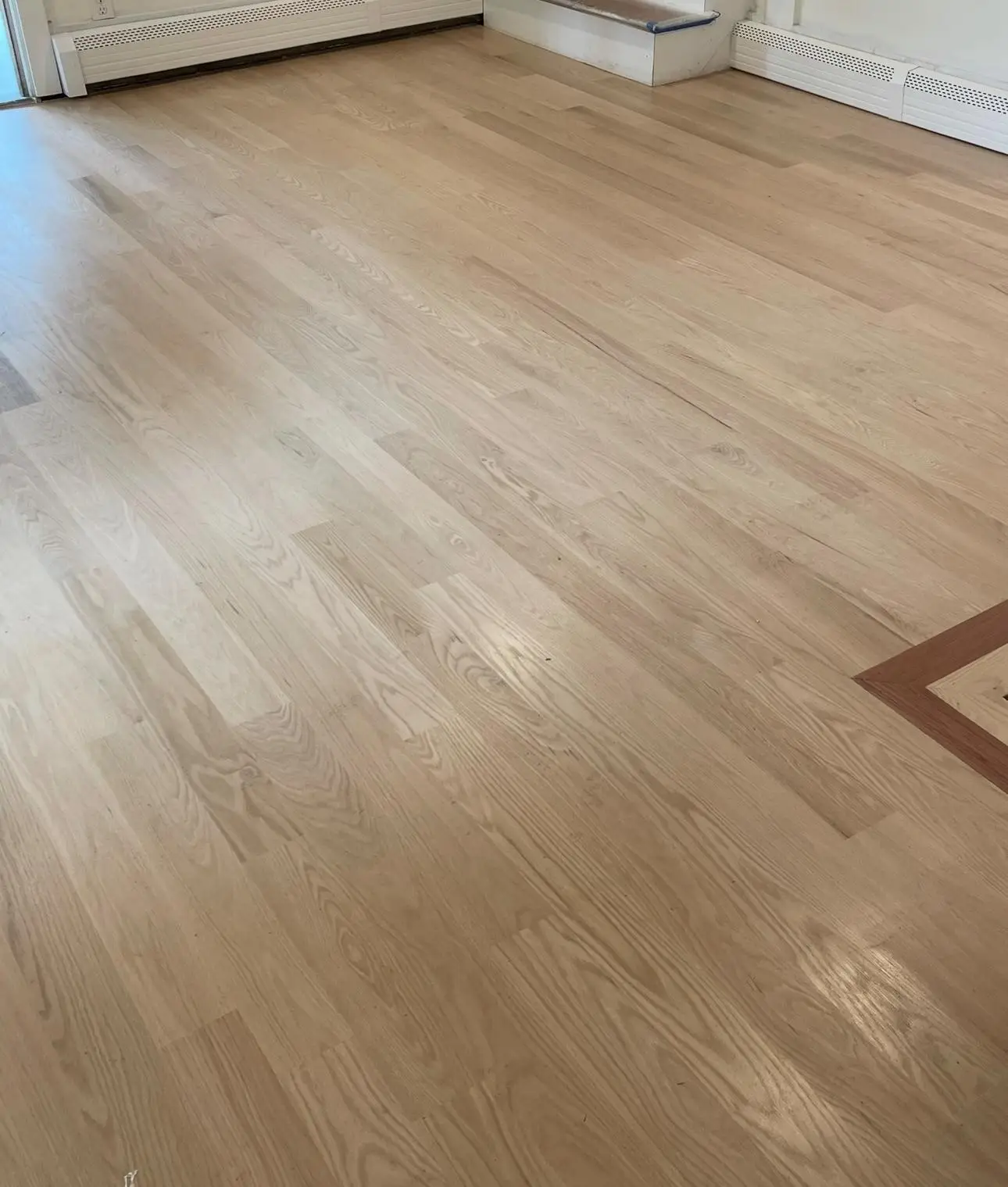Ifyou’re planning to refinish your hardwood floors here in beautiful Cape Cod, one of the biggest decisions you’ll face is choosing between an oil-based and a water-based finish. Both options can protect and enhance your floors, but they offer different benefits and drawbacks. So which one is the best choice for your coastal Massachusetts home?
Let’s break it down and help you choose the right finish for your lifestyle, budget, and the unique conditions of living on the Cape.
First, What Exactly Is a Floor Finish?
Before we dive into the comparison, let’s quickly explain what a finish does. Once your hardwood floors are sanded, a finish is applied to seal the wood, protect it from damage, and enhance its natural beauty. Think of it as a clear protective layer that also adds color and shine.
The two most common types are oil-based polyurethane and water-based polyurethane.


Oil-Based Finish: The Classic Choice
Pros:
-
Rich, Warm Look: Oil-based finishes bring out a deep amber hue in the wood, which adds a traditional, warm tone many homeowners love—especially popular with oak flooring.
-
Durability: These finishes are highly durable and tend to last a little longer before needing a refinish.
-
Smoother Application: They go on a bit thicker, which helps fill in minor imperfections.
Cons:
-
Strong Odor and Longer Dry Time: The fumes are potent (you’ll definitely notice the smell), and drying takes 8–24 hours between coats.
-
Yellowing Over Time: Oil-based finishes tend to amber more over the years, which could be a dealbreaker if you prefer a lighter, more modern look.
-
Environmental Impact: Higher VOCs (volatile organic compounds), which are less eco-friendly.
Best For: Traditional homes, second homes (where you can be away during drying), or if you’re after that warm Cape Cod cottage charm.
Water-Based Finish: The Modern Contender
Pros:
-
Clear and Light Appearance: These finishes go on clear and stay clear, preserving the natural color of lighter woods like maple or birch. Great if you want a clean, Scandinavian-style look.
-
Faster Drying: Dries in 2–4 hours per coat, so your project moves along faster—a big plus if you’re living in the home during the job.
-
Low Odor and Low VOCs: More environmentally friendly and better for indoor air quality.
-
Minimal Yellowing Over Time: Maintains a more consistent color long term.
Cons:
-
Slightly Less Durable: Still tough, but may require recoating sooner than oil-based.
-
More Coats Required: Usually 3–4 coats compared to 2–3 with oil-based.
Best For: Modern homes, beachside rentals, or families who can’t leave the house for long.
Tips from Local Flooring Pros
Here in Cape Cod, we’ve helped countless homeowners choose the right finish. Here’s what we recommend:
Consider Your Floor Color Goals: If you’re working with white oak or want a beachy, natural tone, go with water-based.
Schedule Smart: Planning a refinish in spring or fall avoids extreme humidity or winter drying challenges.
Work With a Local Expert: Local pros understand Cape Cod’s unique climate and flooring needs. If you’re in Barnstable, Falmouth, or anywhere in between, we can guide you to the best product for your situation.
Final Thoughts: Choose What Fits Your Lifestyle
There’s no one-size-fits-all answer. Oil-based finishes bring warmth and toughness, while water-based finishes offer speed, clarity, and eco-friendliness. Either can be a great choice for your Cape Cod home—it just depends on your needs and preferences.
If you’re still unsure, don’t sweat it—reach out! Our team here at [Your Flooring Company Name] is happy to help you choose the perfect finish for your hardwood floors. Whether you’re in Chatham, Sandwich, or Provincetown, we’ve got you (and your floors) covered.





